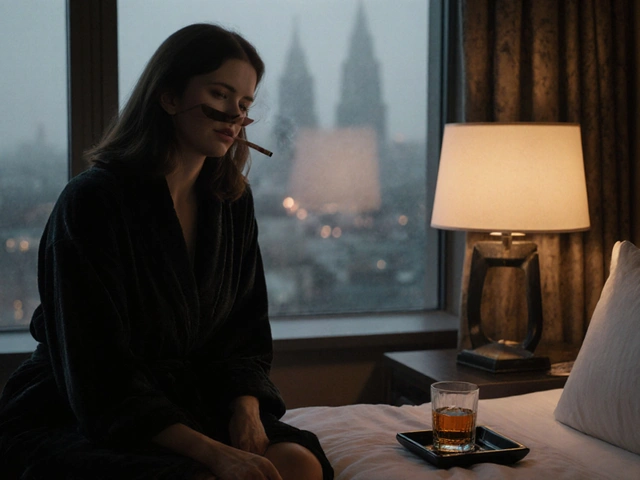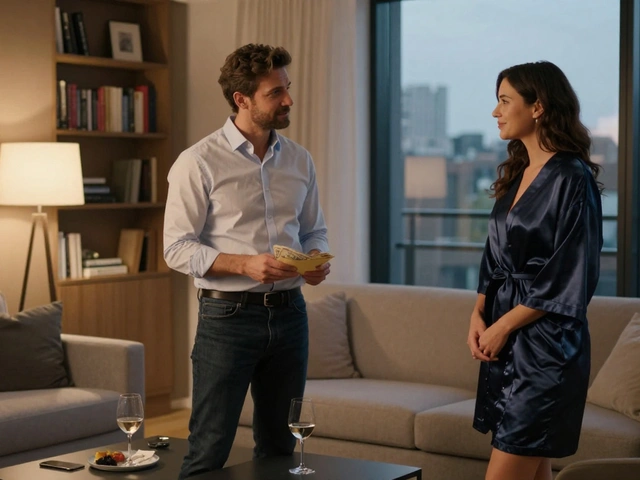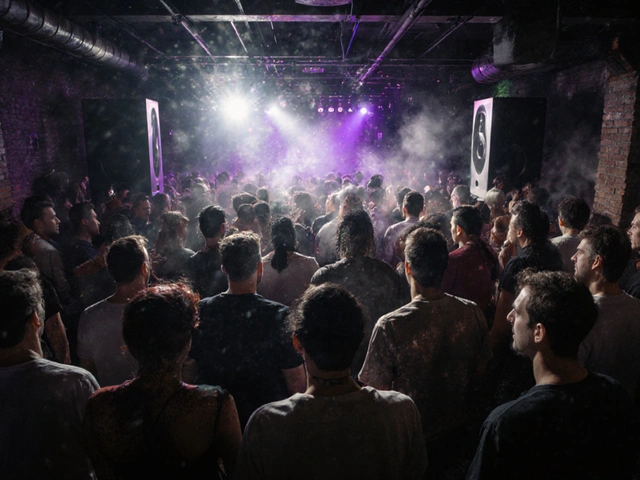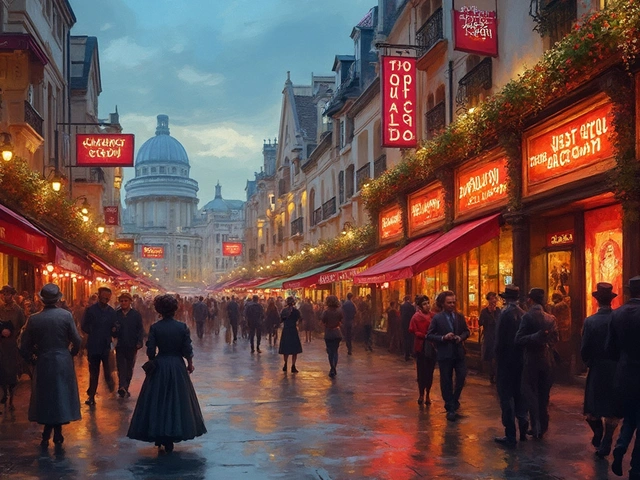In London, where the pulse of the city never truly sleeps, few venues have left as deep a mark on global music as the Ministry of Sound. Opened in 1991 in a former ice rink on Gaunt Street in Elephant and Castle, it didn’t just become a club-it became a cultural engine. While London’s nightlife has always been diverse, from jazz clubs in Soho to basement raves in Hackney, Ministry of Sound carved out a space that wasn’t just about dancing. It was about identity, innovation, and the unspoken rule: if it wasn’t played here, it wasn’t yet big enough.
From Ice Rink to Global Brand
The building that now houses Ministry of Sound was once a derelict 1920s ice skating arena, abandoned after the war. When James Palumbo, Justin Berkmann, and the team behind the influential ‘Sound System’ parties bought it, they didn’t just want another club. They wanted a temple for house and techno-music that was still underground in the UK, even as it exploded in Chicago, Detroit, and Berlin. The design was deliberate: no VIP section, no bottle service, no flashy lighting. Just a massive 1,500-capacity main room with a Funktion-One sound system, engineered to shake your ribs before your brain caught up.
By 1993, the club was already being called the ‘Mecca of House’ by Mixmag. DJs like Carl Cox, Sasha, and John Digweed didn’t just play sets-they delivered sonic sermons. The sound system wasn’t just loud; it was precise. Every kick drum hit like a heartbeat, every bassline rolled through the floor like the rumble of the Northern Line beneath the street. People came not just to dance, but to feel something they couldn’t get anywhere else in London.
The Sound That Changed the Game
Ministry of Sound didn’t just host parties-it created the blueprint for modern dance music compilation albums. The Ministry of Sound: The Annual series, launched in 1991, became a cultural touchstone. By Christmas, every student in Camden, every office worker in Canary Wharf, every expat in Brixton had a copy. It wasn’t just a mixtape-it was a map. If you wanted to know what was hot in London clubland, you checked the tracklist. Artists like Groove Armada, Faithless, and even early Daft Punk got their first real exposure through these compilations.
The club also pioneered the concept of the ‘resident DJ’ as a brand. Carl Cox didn’t just spin on weekends-he became the voice of the club. His Monday night ‘Future Sound of London’ sessions were legendary. People would leave work at 5 p.m., grab a pint at The Crown in Elephant and Castle, and be in the club by 10. No Uber needed. The 36 bus ran all night. The 171 too. You didn’t need a car. You just needed a ticket and the right shoes.
London’s Underground Meets the Mainstream
While clubs like Fabric and The Cross came later, Ministry of Sound was the first to prove that underground music could thrive in a commercial space without losing its soul. It didn’t chase trends-it set them. When garage music exploded in East London in the late 90s, Ministry was one of the first major venues to give it a proper stage. When drum and bass took over Brixton, Ministry brought it upstairs. Even when dubstep emerged from South London basements in the early 2000s, the club didn’t ignore it-it refined it.
Unlike many London venues that shut down after a few years, Ministry survived because it understood its audience. It wasn’t just for teenagers in clubwear. It was for 30-somethings who remembered the early days, for students from Goldsmiths who wanted to hear the new wave, for expats from Berlin and Amsterdam who came to London specifically to experience it. It was the only place where you could hear a 12-inch vinyl pressed in Manchester, played by a DJ from Leeds, in front of a crowd from Peckham.
What Makes It Different Today?
Today, Ministry of Sound still opens its doors every weekend. But it’s not the same as it was in ’95. The main room still has the Funktion-One system, now upgraded. The rooftop terrace overlooks the Thames, with views of Tower Bridge and the Shard. The bar still serves Pimm’s and gin and tonics made with London gin-because even in a club built for bass, Londoners still know how to drink properly.
What’s changed? The crowd. It’s more international. More women. More diversity. But the music? Still rooted. You won’t find EDM drops here unless they’re reworked by a UK garage producer. You won’t hear trap beats unless they’re filtered through a jungle rhythm. Ministry of Sound still refuses to be a generic nightclub. It’s a curator. A historian. A keeper of the flame.
Walk in on a Friday night and you’ll still hear the same rule: no phones on the dancefloor. No selfies. No distractions. Just the music, the crowd, and the echo of 30 years of London’s underground. That’s why, even with clubs like XOYO and Printworks closing, Ministry of Sound endures. It’s not just a venue. It’s a living archive.
How to Experience It Like a Local
If you’re new to London and want to understand its club culture, don’t just go to a trendy bar in Shoreditch. Go to Ministry of Sound. Here’s how to do it right:
- Get your ticket in advance. Door prices are £30+. Pre-sale is £18-22. Use the official website-no third-party sellers.
- Take the tube. Elephant and Castle station is a five-minute walk. Avoid driving. Parking is a nightmare, and the A200 is always jammed after midnight.
- Arrive before midnight. The vibe builds slowly. The first hour is for the true believers-the ones who’ve been coming since the 90s.
- Wear comfortable shoes. You’ll be standing for hours. No high heels. No flip-flops. The floor is concrete, and the bass doesn’t care about your fashion.
- Try the food. The kitchen serves proper British pub snacks-bangers and mash, scotch eggs, crispy chicken bites. Not the usual club nachos. It’s a small thing, but it matters.
- Don’t expect to see celebrities. If you’re here for the stars, you’re in the wrong place. This is about the music, not the scene.
Why It Still Matters
London has seen clubs rise and fall. The Wag Club. The Blue Note. The Astoria. All gone. But Ministry of Sound remains. Why? Because it never tried to be trendy. It tried to be true.
In a city where property prices force out every small business, where council regulations shut down basement parties, where corporate brands try to sell ‘authentic’ nightlife as a package deal-Ministry of Sound stands as proof that real culture doesn’t need permission. It just needs a space, a sound system, and a crowd that’s willing to lose themselves in the music.
It’s not just a nightclub. It’s London’s answer to the warehouse parties of Detroit, the techno temples of Berlin, the house haunts of Chicago. It’s where the UK’s underground found its voice-and refused to turn it down.
Is Ministry of Sound still open in London?
Yes, Ministry of Sound is still operating in Elephant and Castle, London. It remains one of the city’s most iconic nightclubs, hosting events Friday through Sunday and occasional midweek sessions. The venue has been continuously running since 1991, with regular updates to its sound system and layout, but it still maintains its original ethos: music first, no distractions.
What’s the best night to go to Ministry of Sound?
Friday and Saturday nights are the busiest and most diverse, with top international DJs and themed parties. But for the truest Ministry experience, go on a Monday night for ‘Future Sound of London’-the legendary residency that helped define UK house and techno. It’s quieter, more focused, and often features underground talent you won’t hear anywhere else.
Can you get food at Ministry of Sound?
Yes. Unlike most clubs, Ministry of Sound has a full kitchen serving British pub classics like scotch eggs, bangers and mash, and crispy chicken bites. The food is surprisingly good and helps keep energy levels up during long nights. It’s open during events and closes around 2 a.m.
Is Ministry of Sound worth visiting if you’re not into dance music?
Probably not-if you don’t like electronic music, you’ll feel out of place. The sound system is designed for bass-heavy genres like house, techno, garage, and jungle. But if you’re curious about London’s music history, a visit during a daytime tour (offered weekly) is worthwhile. You’ll see the original sound system, learn about the club’s role in shaping UK club culture, and understand why it’s still standing when so many others have closed.
How does Ministry of Sound compare to Fabric or Printworks?
Fabric was more underground and experimental, often pushing boundaries with harder techno and bass music. Printworks was a massive industrial space with a raw, warehouse feel. Ministry of Sound is more polished, more commercial-but also more consistent. It’s the only one of the three still open today. While Fabric and Printworks closed due to licensing and noise complaints, Ministry survived by being both a cultural landmark and a well-run business. It’s less about shock value, more about legacy.
What Comes Next for London’s Club Scene?
As London grapples with rising rents, noise complaints, and the decline of live music venues, Ministry of Sound’s survival is a rare win. It’s a reminder that when a space is built for music-not for profit, not for Instagram, not for VIP bottles-it can outlast trends.
Younger clubs like The Windmill in Brixton or The Social in Fitzrovia are trying to carry the torch. But none have the scale, the history, or the sound system to match Ministry. For now, it remains the one place in London where the past, present, and future of dance music all converge. And as long as the bass still shakes the walls of that old ice rink, it’ll keep beating.






